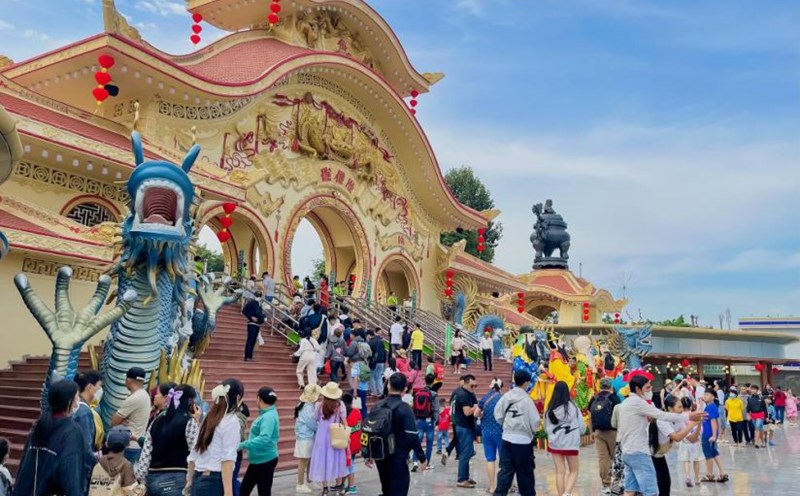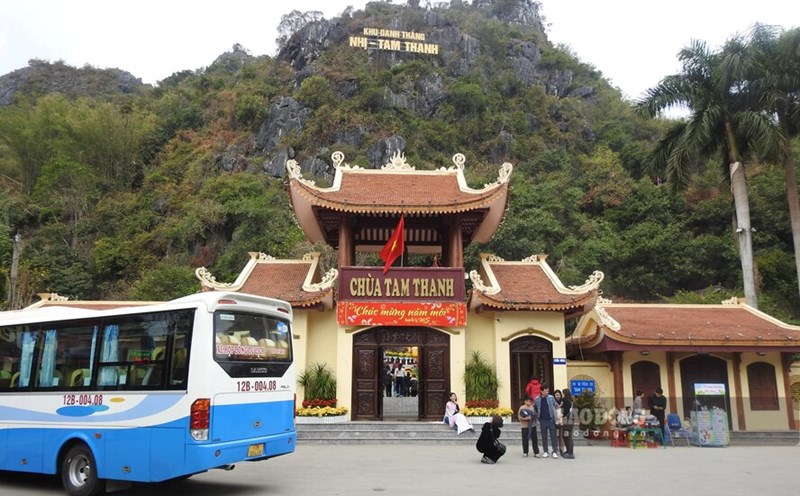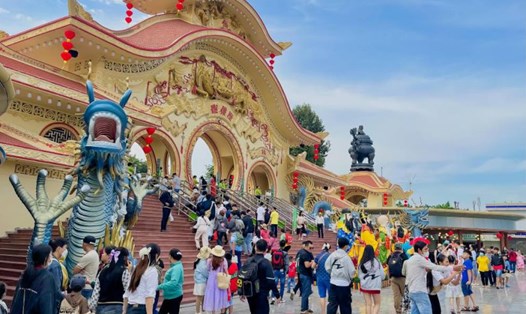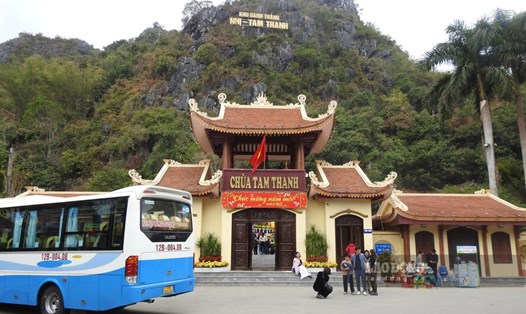Emma is youthful, passionate about traveling and technology, and can speak 20 languages. But in reality, Emma is a virtual character, a digital human.
A new breeze of AI-era tourism
At the end of 2024, the German National Administration of Tourism launched Emma, an AI-generated female tourism ambassador.
On Emma's Instagram account, she often posts online travel stories and tips in the hope of inspiring her followers to explore the beauty of Germany.
With more than 6,400 followers and hundreds of thousands of views per post on Instagram, Emma has joined a ranks of other virtual celebrities on this social platform, such as virtual singer Miquela with 2.5 million followers or influential person in the tourism industry from Indonesia - Thalasya pov with 455,000 followers.
Many influential people in the AI-generated tourism industry attract audiences by sharing inspiring content about destinations, combining creativity with digital storytelling to arouse a passion for travel.
And influential virtual figures in the tourism industry, with human-like nicknames, personalities and appearances, are creating a new breeze in tourism marketing.
This is just one example among countless technologies applying AI to support and optimize the tourism industry.
AI not only effectively supports customer service, it can also suggest personalized trips according to each person's preferences.
These recommendations are often directly linked to activities, accommodation and flight selection, making trip planning and booking easy and convenient.
According to the 2025 Travel Prediction Research results conducted by Booking.com, 41% of more than 27,000 respondents globally are interested in using AI-powered itineraries.
Free tools like Booking.com's AI Trip Planner and Expedia's Project Explorer can create pocket-based and personal-favorite travel packages in just a few seconds.
Meanwhile, Skyscanner's AI chatbot to support trip planning named Layla proves its superior ability when taking on the role of a personal travel agent. Layla is also part of the growing trend of AI tools with similar to humans, giving visitors an interactive and engaging planning experience.
In addition, businesses operating in the tourism sector, from airlines to online travel agents, are also using AI to predict travel models, airfares and customer demand. Technology helps travelers make smarter choices, such as choosing an ideal travel date or booking cheaper flights.
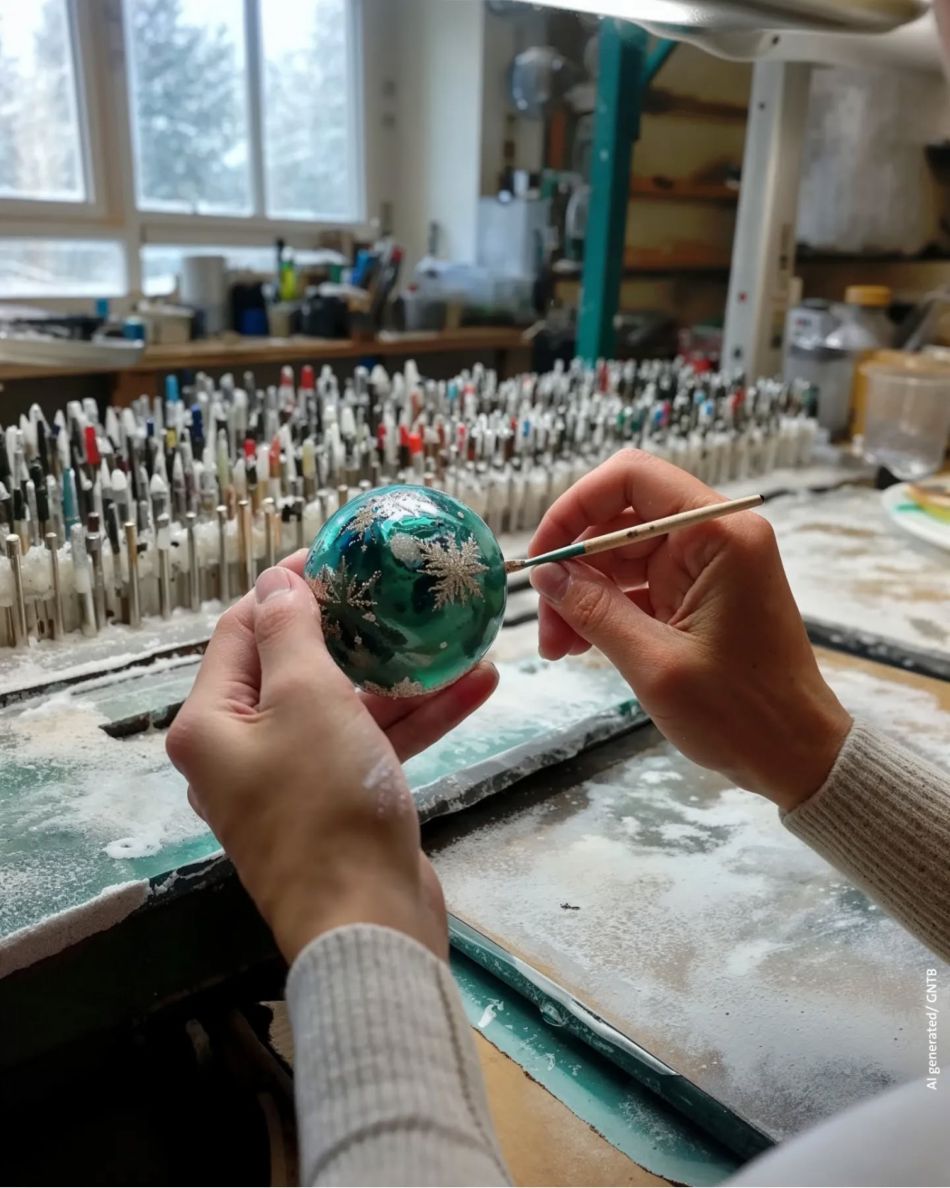
Focus on customer experience instead of destination
On February 13, requested travel service provider Black Tomato launched a new digital tool Feelings Engine that helps travelers identify destinations that make them feel relaxed, comfortable, inspiring, excited - or any emotions they are looking for.
Co-founder Tom Marchant said the company is using AI to turn a difficult question into an answer - "How do you want emotions to be?" - into a game.
We not only want to know where customers want to go, but also want to know how they feel? We always strive for that and use technology to make customer emotions a top priority, said Mr. Marchant.
Marchant is not the only one to highlight the emotions tourism brings.
Ms. Misty Belles, Communications Director at Virtuoso Company, a network of about 20,000 travel consultants, said the company has partnered with market research and data analysis company YouGov to conduct an annual survey on travel models, spending trends and emotional factors affecting travel decisions.
In the most recent survey, the results showed that 65% of US travelers search for happiness or well-being. 57% said, Surprise and excitement is an important emotional factor when planning their trip. Excitation accounts for 51%. Finally, according to Ms. Belles, this is the core of high-end tourism - bringing valuable emotions to visitors.
Returning to Black Tomato's feelings Engine, when using the keyword "Relax", users will receive two options that are suitable for this emotional state, including: Spiritual travel in Nepal and Bhutan, or a trip to Spain to the Alhambra palace at sunset.
If users continue to ask, Is a trip to Nepal suitable for children?, the system will refinish the results and respond that the holiday at Scotlands castle could be better for families with young children.
The tool can suggest about 400 different itineraries, each designed to suit a separate range of emotions. In particular, the tool can describe a location in many different ways, depending on the emotion the user wants to experience - just like how a travel agency can adjust the advertisement to suit each customer group.
A relaxation journey in Maui opens up the prospect of awakening to the roaring waves at the luxurious Wailea Hotel, and enjoying absolutely peaceful moments or experiencing rowing a boat in the clear blue waters with adorable sea turtles.
Similarly, if you want to enjoy nature, the tool will introduce a journey to discover the wonders of the Haleakala cape.
Ms. Belles explained that when agents can know what customers are looking for, they will help customers find the best trips. Thanks to that, dealers can bring real value to customers, surpassing popular tools such as ChatGPT.
For his part, Mr. Marchant shared: We always do things differently. Applying technology will help us reach more people, so that we can bring wonderful and effective experiences to more people".


